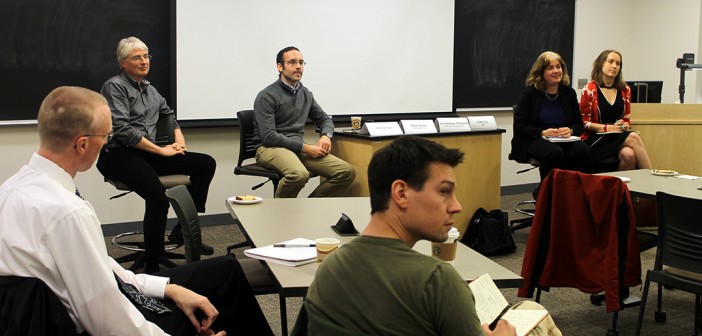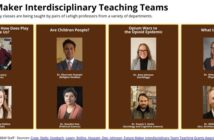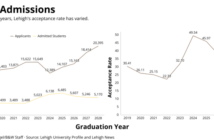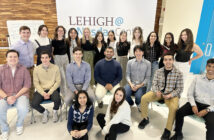To help graduate students understand the job search process, Career Services held a panel discussion Friday to understand best practices for getting interviews and how to have a successful interview.
The panel consisted of four Lehigh professors: John Savage, director of graduate studies for the history department and associate professor of history; Mark Snyderan, assistant professor in chemical engineering; Joan Ramage-McDonald, associate professor of earth and environmental science; and Jenna Lay, assistant professor of English.
Approximately 30 students signed up to attend the panel. One participant started the discussion by asking about the panelists about what helped each of the them get a second interview, what distinguishes candidates and if they had any advice for students.
Savage advised students to practice their ability to be clear. Since every member of the search committees may not be in the interviewee’s specific field, it is important that students give capsules of their work.
“Clearly be able to tell your research to people on the committee who do not have this knowledge and be able to pitch your research at a level that is appropriate to the audience,” Savage said.
Snyder warned of the dangers of using technology and Skype for job searches and interviews. He said there can be technical glitches and that it is “good not to have them on your side of the call.”
Another participant discussed how it can be overwhelming to get support from others during the job process and how different people may give conflicting advice. The student then asked who the panelist relied on for support with interviewing and who they recommend the students go to for support.
Lay answered this question by suggesting the students utilize family and friend support.
“Sometimes your biggest resource won’t be a faculty mentor,” Lay said. “Search committees aren’t unitary, they will have different ideas. There is no one right answer and they may not even know what they want, so you should be yourself.”
Ramage-McDonald told students not to do things because their adviser or mom says to do it. She said having genuine enthusiasm is the best option.
After the event, Kara Richter, a graduate student, said she enjoyed the forum since it was open for questions and there was a diverse panel in terms of genders and fields. She said she would recommend other students to attend events like these once they are thinking about applying to jobs.
“There were frequent times that the discussion went into areas that did not have any relevance to me,” said Christopher Klosko, a graduate student. He said thinks it would be helpful to have multiple shorter sessions that are tailored to specific fields.
Klosko said because of the events, he understands the importance of building connections early and having close relationships with faculty who can write strong recommendations.
“I certainly would not recommend this kind of event to undergrads, but even graduate students who are less far along can benefit from having a sense of how the job market in their field works and what they might do to best prepare themselves for the moment they go on the market,” Savage said.






Comment policy
Comments posted to The Brown and White website are reviewed by a moderator before being approved. Incendiary speech or harassing language, including comments targeted at individuals, may be deemed unacceptable and not published. Spam and other soliciting will also be declined.
The Brown and White also reserves the right to not publish entirely anonymous comments.